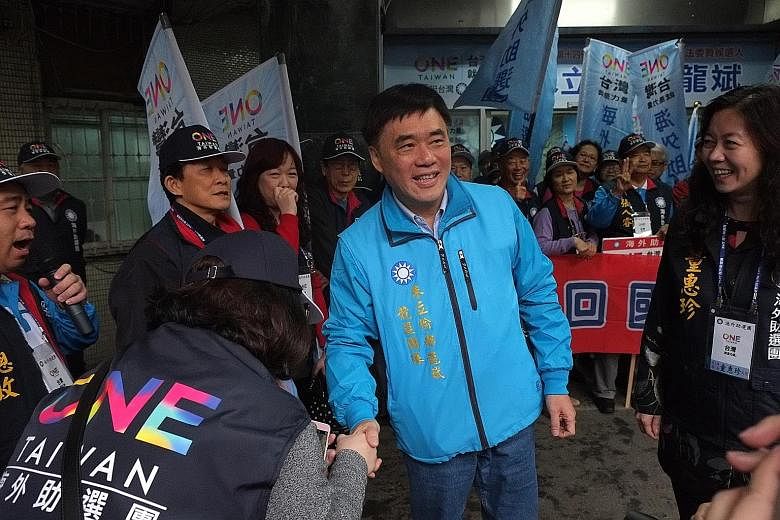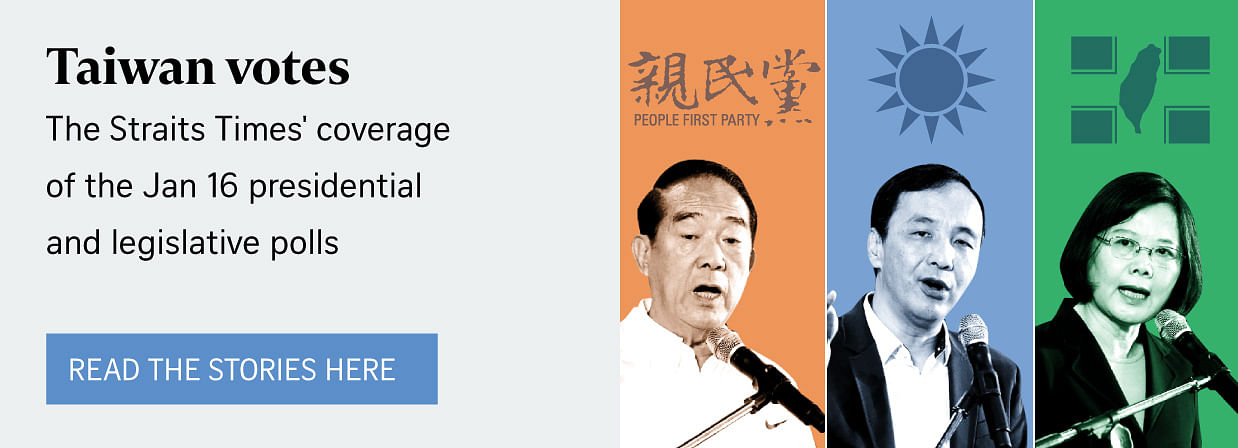Like Hollywood, Keelung in north Taiwan has a giant sign perched atop a hill, proclaiming its proud existence to the world.
However, in recent years, not many are taking notice of this once-bustling port city. Two decades ago, its container port was Taiwan's largest, and the world's seventh-busiest. Today, it has sunk largely into oblivion.
Located at the head of the island facing the East China Sea - 45 minutes away from Taipei by train - Keelung is now a city in decay, say residents. Buildings are derelict, and roads are narrow and congested.
Its people, especially the young, are leaving to find jobs in other places. The completion of the Taipei port in 1998 has gradually chipped away at Keelung's position. Just thousands of cargo and trucking jobs remain, down from the tens of thousands before.
The city's population now stands at 370,000 - down 16 per cent from a year ago. Housing vacancy rates are at a high. Property prices are one-tenth that of Taipei's.
And with its wet and humid climate, even the residents make fun of the city. Keelung is laoren cheng, or old people's city, say its residents. Shopkeeper Tsai Fen, 65, asks: "Do you see any young people here?"
Former premier Jiang Yi-huah, himself a Keelung native, last year called it a "mouldy, rusty, second-class city", when announcing a makeover plan for Keelung.
The people are fed up, says Mr Jery Wang, 48, who runs a restaurant. "The infrastructure is bad - we have no MRT, no buses. There are also no jobs - the young people are leaving, and I will leave if I can."
In particular, they are fed up with the ruling Kuomintang (KMT) government - at both the central and local levels - for not restructuring the economy and fixing the city. Keelung's former city council speaker, from the KMT, has also been embroiled in allegations of siphoning off public funds.
The southern tide of Democratic Progressive Party (DPP) green may thus reach all the way north, showing up just how much at risk the KMT is of losing its majority in the legislature.
This traditionally deep-blue bastion of support for the KMT is seeing a tight legislative race like never before. It has never had a legislator from the key opposition DPP but this could change. Various polls show either the KMT candidate or his DPP rival being ahead.
Making this uncertain state of play more ignominious for the KMT is the disparity in the candidates' credentials.
The KMT is fielding one of its heavyweights, vice-chairman Hau Lung-bin, 63, the son of a former premier and himself a former Taipei mayor who is touted as a possible future presidential candidate.
In contrast, the DPP candidate is the relatively unknown city councillor Tsai Shih-ying, 42. Splitting the blue vote further is a third candidate, Mr Liu Wen-hsiung, from a small blue party, People First Party.
In an interview with The Straits Times, Mr Hau says "sentiment towards the KMT is very bad and the environment is very tough".
But he says his experience means that he is the best man to fix the city's problems. Among his proposals is to incentivise Taipei-based firms to invest in Keelung.
He also warns of allowing Taiwan's legislature to be controlled by the DPP, given that its chairman Tsai Ing-wen is a shoo-in for the presidency. "KMT is the best bet for Taiwan's stability."
Executive Vivi Wu, 32, who supports Mr Hau, agrees, saying the insipid economy is due to the "global environment" and not KMT's fault.
Mr Tsai, meanwhile, says it is time for an "old, conservative" politician to exit the scene.
On whether it will be a loss of face for him to lose to his younger and less experienced opponent, Mr Hau would only say: "I came here because I am sure I can win."


